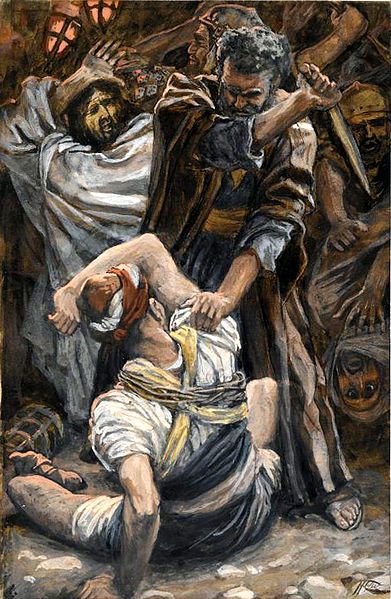On Easter Sunday, bombs exploded in Sri Lanka killing, at last count, 359 people including at least 45 children. The bombs were set off in churches and hotels, obviously targeting Christians and tourists. In France, a church was set on fire in the village of Eyguieres in the early morning; fortunately no one was killed or injured. In Nigeria, a car bomb exploded near a church in Kaduna killing at least 28 people, part of an ongoing persecution of Christians in that country that has taken at least 380 lives in 2019. The Washington Post published an opinion piece by John L. Allen, Jr in its April 23rd edition that states: “On major Christian feast days, somewhere in the world, some number of Christians are likely to be killed for no reason other than that they chose to attend religious services. Because Christmas and Easter are the holiest days on the Christian calendar, churches tend to be especially full, presenting ripe targets for anti-Christian hatred.” Mr. Allen, editor of the Roman Catholic-oriented news website Crux, goes on to detail various attacks on Christians around the world and not only on holidays: “… it is certain that at any hour of the day, a Christian somewhere is being martyred.” He ends his thoughts with a call for systematic education in religious tolerance worldwide, as well as aggressive security measures at Christian sites on holy days. “Until such a mobilization occurs, Christians will continue to be forced to celebrate Christmas and Easter in the grim and certain knowledge that some of their fellow celebrants around the world will not live to see the next day.”
Christian persecution is as old as Christianity. Many believers over the centuries did not live to see the next day after they gathered to worship. We seem to find a new level of outrage when these events occur on Easter, considered to be the holiest day on the Christian calendar. Believers gathered to celebrate the Resurrection only to be attacked and killed. I hate that my brothers and sisters in Christ are being murdered for their beliefs. I don’t want anyone to suffer for the practice of faith. I want the people responsible to be caught and punished. God is a God of righteousness and He demands justice. It is wrong that they were murdered for their faith.
Yet we sometimes forget that believers were promised persecution by Jesus Himself. On the night He was betrayed, Jesus said, “Remember the word that I said to you, ‘A slave is not greater than his master.’ If they persecuted me, they will also persecute you.” (John 15:20) In the Sermon on the Mount, Jesus said, “Blessed are those who have been persecuted for the sake of righteousness, for theirs is the kingdom of heaven. Blessed are you when people insult you and persecute you, and falsely say all kinds of evil against you because of Me. Rejoice and be glad, for your reward in heaven is great’ for in the same way they persecuted the prophets who were before you.” (Matthew 5:10-12) Our Sri Lankan and Nigerian brothers and sisters are experiencing that reward in heaven now. As Paul wrote in Romans 8:18, “For I consider that the sufferings of this present time are not worthy to be compared with the glory that is to be revealed to us.” Yet it is wrong that they were murdered for their faith.
I have baptized people on Easter Sunday who considered it a great honor to follow Christ in baptism on such A special day. I imagine that worshipping the risen Savior on Easter one moment and then opening your eyes in His presence the next would be beyond incredible. Once they have tasted the glories of heaven, we would not wish for our brothers and sisters to return to our fallen world. Yet it is wrong that they were murdered for their faith.
Those who persecute others for their religious beliefs are operating under the belief that their religion is correct and others are therefore wrong and must be eliminated. In fact, Christians have killed others, including other Christians, in the name of their faith. Many people are obviously ignoring the modern mantras that “all religions are the same” and “all paths lead to God” when they are murdering people on a different path. We delude ourselves if we think mankind can achieve universal peace on its own. There is only one source of true peace and we can experience that peace, but we will not experience it universally until Jesus, the Prince of Peace, returns.
I recently cleaned out my desk and found some slides in a drawer. They have been sitting in a pile on the side of my desk for a few days. As I was writing, I picked them up to have a look while my brain continued to percolate on these words. They are images captured many years ago when I visited Mount Corcovado in Rio de Janeiro where stands the massive statue Cristo Redentor, or Christ the Redeemer. I don’t believe in coincidences so let us consider Christ the Redeemer. Murdered on Good Friday in part because He was a threat to the religious practices of the Jews. Murdered on “Passover Eve,” just before one of the holiest day in the Jewish calendar (as the Preacher wrote in Ecclesiastes 1:9, “There is no new thing under the sun.”). Murdered as a part of an eternal plan to redeem men and women from the penalty of sin, which is death. Murdered willingly, which sounds so odd. Murdered, yet resurrected on Easter Sunday to grant the promises of abundant life and eternal life to those who believe. The Redeemer’s arms are open to receive those who believe, even persecutors who are drawn to His grace.

Grieve for the murder of believers. Grieve and pray for families that are grieving. Understand that you will suffer for your beliefs; it is not new and it should not be surprising. Share the gospel, especially in the face of persecution. We should fight terrorism and murder, certainly, but we should fight to share the truth with a lost world because true terror is eternal separation from the love of God.







